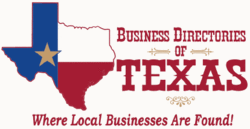Think of this as Volume 11, Number 30 of A-Clue.com, the online newsletter I’ve written since 1997. Enjoy.
We’re on the verge of a breakthrough in journalism. A breakthrough in business models.
Publishers like ZDNet, where I now work, have found some success with incentive programs based on pageviews. They have good online publishing systems and ad staffs which can fill the corners of an online page with money-producing ads. By putting the two together, everyone can make a living.
Critics will note it can be tweaked a bit. I get a lot more traffic from trollbait than from innovative, interview-driven stuff, so when I’m hungry I go with the trollbait. Over time readers will notice, and it’s up to the publisher to tweak their financial incentives to keep me on the straight-and-narrow.
If we could simply take this model into local news markets, we’d have enough money to pay for covering all those events and scandals which right now aren’t being covered. The zoning games played with developers. The small corruptions of the local school boards. The side deals done to lure businesses to town. An open meeting is closed if there’s no one there taking notes.
In his print column for July 28 Jonathan Alter of Newsweek (left) weeps bitter tears over this. "Bloggers rarely pick up the phone or go interview the middle-level bureaucrats who know the good stuff," he writes.
I know why. It doesn’t pay.
This has always been true. You know how much of a print newspaper’s budget goes to editorial? (This is also true for journals like Newsweek, by the way.)
8%!
That’s all the writers, all the editors, the whole art department, the secretaries, the research people, everything. Over 90% of a newspaper’s income goes elsewhere — to the ad staff, to the printer, to the delivery guys, to the executive suite, to the bottom line. That’s all you’re really worth, Alter — a little piece of that 8%.
So there is plenty of room to create incentives for news-gathering. Advertising isn’t disappearing. It’s simply changing media — from print to online. And newspapers simply aren’t competing for that dollar. Because of attitudes like Alter’s, which are divorced from the market.
The problem is this assumption of "authority" which positively oozes out of Alter’s pores, and those of every other so-called journalist in this country. That’s something your employer earns for you, and you try very hard not to toss away. It’s a loan, not a grant, which comes from the market, not from God.
So here’s the secret to making money online, doing real journalism, in 2008.
You used to stand atop a mountain of ad money and circulation.
You need to stand on top of a mountain of ad money and traffic.
How do you get traffic? Every way you can:
- Build a business directory, a database with pointers.
- Build a community directory, also a database with pointers.
- Give those in your trade area all the social networking tools you can, pointing to those directories.
- Use some of the resulting ad revenue to pay for editorial, combining the best of those who write free with the staff you maintain for the purpose.
Remember the specific mission of all journalism, which is "to organize and advocate a market, lifestyle, or industry." The directories organize. The social networking lets people advocate for themselves, in an organized way.
Now remember the key business lesson of the Internet, which is "give, then take." You give away access to the directories. You fill up your local Google map (using the Google Map API) so people can quickly find any business in town, then their directory listing, which includes links to everything you have on the site about them. That’s one interface. Your existing news morgue, through a search box, is another interface. The organized social network you give away to your target market is a third interface.
What you’re building is a cloud of organized information and interaction which can be reached from many different directions. Search Engine Optimization (SEO), the legitimate tools which Google itself offers through Google Analytics, help you maximize traffic and minimize the hassle factor of people who want to get deep into your site from the get-go.
Forget the home page. Forget the news coverage. Those are after-thoughts.
Just like in a real newspaper.
Want to know how real newspaper businesses spend their money? They become marketing partners with local businesses. They provide free analysis on the effectiveness of their advertising, and ideas on how to increase sales most cost-effectively. In print these are done through reports covering the effectiveness of ads inside the newspaper, ad sheets stuffed into it, and competing media.
You do the same thing here. You can know how many people link from a car ad on your site to the dealer, and analyze how well they go down the sales funnel at the dealer’s site. You become their marketing expert, they’re going to give you money.
Now where did the news go? (Picture from Searchenginegurus, an article on the failure of current online newspapers.)
Out of total monthly site revenues you create a "news" budget, a specific proportion of those revenues.
Half the money goes into an incentive plan for all writers — both those who are just readers and those who "work" for you. The more traffic generated, the bigger the pile of green they bring in. This locks the best bloggers in town into your site, even compensates them, and you co-brand it — their name goes right up with yours. The other half becomes a news budget. It’s used to pay people on a weekly or per-story basis to go out to those meetings, to dig up those stories you know are all around town, which you then feature.
Let’s review, shall we?
- A business directory, tied to local maps, which organizes every business and institution in town.
- A social networking platform, all the tools a site like Facebook has, only with a compensation model.
- An ad staff which works to keep the CP/M on those pages as high as possible by maximizing the take of local busineses.
- A percentage of the total goes into newsgathering, which increases prestige, and delivers thought leadership.
I have been talking about this, in various forms, ever since the Web was spun. This is what A-Clue.Com has been about since its founding in 1997.
No one has yet taken me up on it. No one has delivered on the vision.
Do it, and you’ll get rich. Maybe rich enough to hire me. Will write for food.














